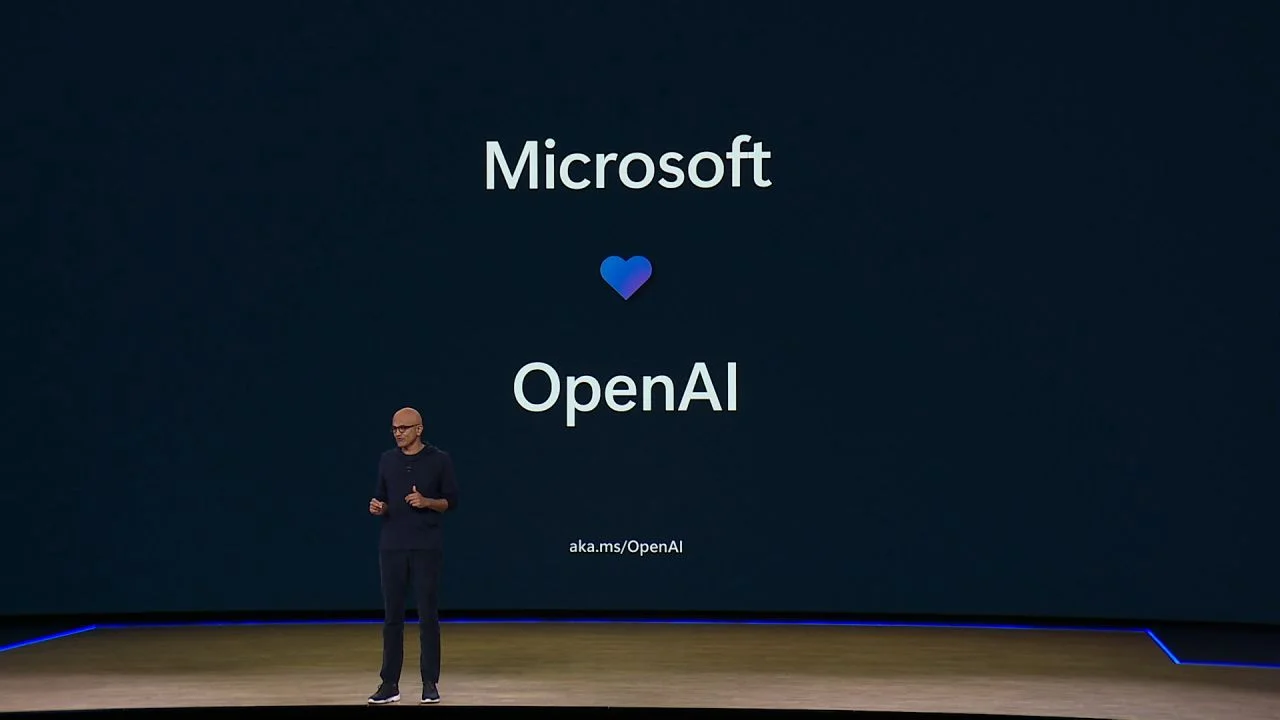
OpenAI may be facing significant funding crises within the next three years, potentially forcing it to sell to Microsoft, according to an AI industry analyst firm.
CCS Insight boldly predicted that OpenAI might need to sell to Microsoft due to a potential financial shortfall in the near future. As the hype over artificial intelligence (AI) starts to cool, the funding gap needed for companies like OpenAI and Anthropic to continue their AI innovation could become too painful to bear. This may lead them into the arms of large investors, with Microsoft and Amazon emerging as potential candidates to acquire this valuable technology.
Ben Wood, the chief of research at CCS Insight, has predicted a “correction” in the AI funding market. He noted that the current enthusiasm for AI, which has driven massive investments, is set to slow down. As a result, fewer investors will be eager to finance the next phase of AI development.
“AI startups will soon wonder whether it makes sense for them to continue independently. Once investors’ attention shifts, OpenAI and other AI firms may struggle to secure the necessary funding for their ambitious plans,” Wood explained.
Although OpenAI has successfully raised capital to date, its future may not be as secure. According to Wood, while the company faces no immediate challenges, the situation could shift drastically by 2027. “In a few years, the AI landscape could look very different,” he added.
OpenAI is a vital component of Microsoft’s AI ecosystem, particularly in light of its GPT technology integration into products like Microsoft’s Copilot AI services.
Wood believes it would be strategically essential for Microsoft to acquire OpenAI, gaining full control over the technology that powers its AI products. “Owning OpenAI would allow Microsoft to shape the future of AI on its own terms,” Wood noted.
This isn’t the first time Microsoft has been considered a possible buyer of OpenAI. In November 2023, the AI community was shaken when OpenAI CEO Sam Altman took an abrupt leave of absence, briefly joining Microsoft before returning to OpenAI following protests from his team. This incident highlighted the close ties between Microsoft and OpenAI.
As investor enthusiasm for AI cools and the need for significant capital continues to grow, Microsoft may find itself in a prime position to acquire OpenAI, ensuring its dominance in the AI sector.
One of the biggest challenges for AI companies like OpenAI is the significant financial burden of staying competitive in a rapidly evolving AI industry. Running large-scale AI models is incredibly expensive, and these costs are expected to rise as competition intensifies.
“AI firms will need deep pockets to maintain their competitive edge,” said Wood. With the vast sums required to stay ahead, Microsoft and other investors may take a more active role. A full acquisition of OpenAI may provide the financial stability needed to continue advancing AI innovation.
As Microsoft and OpenAI prepare for potential shakeups in the AI space, another major player, Nvidia, may see its dominance start to fade. Nvidia, which powers many of the leading AI models through its CUDA framework, has been a key beneficiary of the AI boom, with its stock price soaring.
However, CCS Insight predicts that Nvidia’s dominance may not last forever. “Currently, Nvidia is the only real player when it comes to providing chips for AI, but that could change,” said Wood.
As open-source AI alternatives to Nvidia’s technology develop and AI investment begins to slow, Nvidia may lose its grip on the market. Wood also mentioned that companies like Meta are building massive AI infrastructure, which could pose risks if they overextend their capacity.
These predictions from CCS Insight indicate a significant shift in the AI landscape. The current boom, which has fueled immense investment and innovation, could soon be tempered by a more cautious funding environment.
With Microsoft already heavily invested in artificial intelligence, the company may see this as an opportunity to acquire OpenAI and secure its position at the top of the AI industry. Meanwhile, Nvidia could face competition from open-source AI solutions and emerging technologies that challenge its dominance.
The AI industry is poised for significant changes in the next few years. Funding challenges and intensifying competition may force companies like OpenAI to make difficult decisions. In this context, OpenAI’s close relationship with Microsoft could lead to a full acquisition, solidifying Microsoft’s place as a leader in the AI revolution. At the same time, Nvidia may face growing competition from new entrants and open-source AI frameworks, threatening its current dominance.
As the AI market continues to evolve, the companies that can adapt quickly and secure the necessary funding will be the ones to thrive in this dynamic and rapidly changing industry.
Subscribe and get 3 of our most templates and see the difference they make in your productivity.
Includes: Task Manager, Goal Tracker & AI Prompt Starter Pack
We respect your privacy. No spam, unsubscribe anytime.